PRESERVING A MILITARY LEGACY FOR FUTURE GENERATIONS
The following Reflections represents CS2 Ronald Berg’s legacy of his military service from 1963 to 1974. If you are a Veteran, consider preserving a record of your own military service, including your memories and photographs, on Togetherweserved.com (TWS), the leading archive of living military history. The following Service Reflections is an easy-to-complete self-interview, located on your TWS Military Service Page, which enables you to remember key people and events from your military service and the impact they made on your life. Start recording your own Military Memories HERE.
Please describe who or what influenced your decision to join the Navy.

I was having a hard time with high school, and with some of the teachers, so I dropped out. I wasn’t doing much after that; I just hung out with friends, ran around town, and did whatever we could think of doing. Needless to say, my folks were getting tired of what I was doing. Just before my seventeenth birthday, my dad told me I had to move out when I turned seventeen. So, with one of my friends, I decided to join the military. I wanted to join the Navy because my oldest brother once was in the Navy. So, just after I turned seventeen, we signed the papers to join. I was from a small town in Minnesota; they took us to the twin cities to fly out of. Remember, I just turned seventeen and had never been out of state. So, now we were taxing down the runway, getting ready to take off, and all of a sudden, this man had a heart attack and died right there. I remember thinking, “What the hell did I get myself into?” They sent us to San Diego for boot camp. The next day after we got there, November 22, 1963, President Kennedy was shot and killed. Everything came to a standstill; nobody knew what would happen next or if we were going to war with the USSR or Cuba.
Whether you were in the service for several years or as a career, please describe the direction or path you took. What was your reason for leaving?
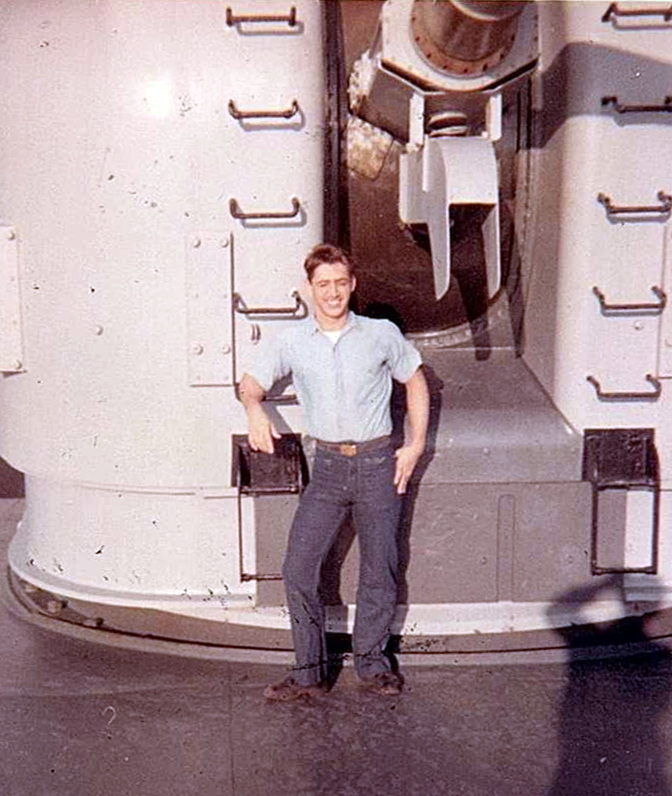
After boot camp, I was sent to a ship, U.S.S. Jonas Howard Ingram DD938 (JI), out of Mayport, Fla. Because I had no rating, I was assigned as a Boatswain Mate (Deck Ape). So that is where I worked for the first few months. Then I was sent to the galley to be a mess cook, where I worked in the dish room, that’s where all the trays, cups, and flatware were washed. I worked there for about a month or so; then I was sent to the kitchen to clean all the pots and pans (what they called a” Peral Diver”). I liked working there. After working there for a few months, the cooks would let me help them prepare some of the food or help service it. Then, I got to a point where I was helping with some of the cooking that I enjoyed doing.
There was a Second Class Cook (E-5) by the name of Kenney Reed, who worked as the “Galley Captain.” Then one day he asked me if I would like to be a cook, I told him that I would very much like to do that. However, a Second Class (E-5) Boatswain Mate didn’t want me to move out to be a cook. Needless to say, I was a lonely E-2 at the time and had no pull at all. I know that he and Kenney went around and around about me moving to be a cook. One thing I liked doing before I went on liberty was to lay my clothes on my bunk, that way after I got done with my shower all I had to do was get dressed. This one time after I got done showering, and when I went to get dressed my shoes were missing and there was another pair in place of them, I didn’t know whose they were, so I put them on and went on liberty. When I got back to the ship, this Second Class and the “Officer of the Deck” were waiting for me. The officer asked me whose shoes I had on. I told him that they were not mine, that someone had taken mine and put these in place of them; the Second Class said that was a lie, that I had taken them from his locker. I was put on report and went to XO’s Mast, where I was restricted to the ship for thirty days. During that time, Kenney went to the Supply Officer to have me moved to be a cook. Kenney took me under his wing after I was assigned as a cook. I learned so much from him, thanks to him believing in me I was able to make Seaman, and he helped me advance to Third Class Petty Officer. At the time when I made Third Class the Navy was not giving out meanly promotions, I was one of the lucky few that got promoted. Kenney also helped me to get a GED. He and I became the best of friends, and as of today, he is still the best friend I ever met when I was in the Navy.
I served a little over ten years; the reason I got out was because of my wife at that time. Even though I met her when I was in the Navy, she didn’t like me being away for so long, and it was putting a strain on our marriage. So I got out, which was too bad because I really liked being at sea and on board the ship, but you know what they say; ” Happy Wife, Happy Life.” Little did I know that the decision I made to become a cook would set the path for me for the rest of my life; I’ve been in food service ever since then. Thanks to Kenney encouraging me to get my GED, I was able to go to college for Restaurant Management, and later on, I went back to college to be a teacher. I have to say I have had a great time working in food service; I have worked for one of the top chefs in the nation, and I’ve gone to several cooking schools, both in the Navy and out. I have also attended management training for several large restaurant chains. I started out working as Shift Manager, Assistant Manager, Manager, General Manager, and District Manager, and I’ve owned my own restaurant.
If you participated in any military operations, including combat, humanitarian and peacekeeping operations, please describe those which made a lasting impact on you and, if life-changing, in what way?
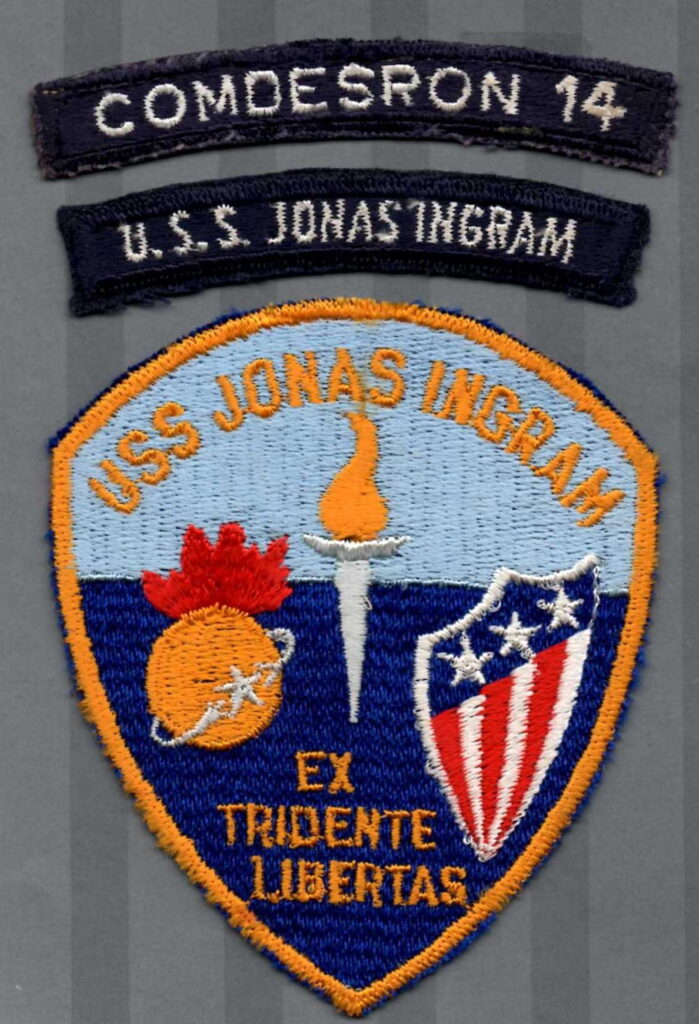
I participated in several military (exercises) and operations. I was on board a ship (a destroyer) out of Mayport, Fla.; we were the Command Ship “Flag Ship” for Atlantic Task Force Squadron 14, and as such, we participated in a lot of operations and exercises. We were awarded the Battle-E for engineering and supply, and the ship was awarded the Battle-E for overall ship readiness. The first operation I was in was in the first part of Dec. 1964, when we were one of the ships to participate as a recovery ship for the Gemini space venture GT-2. And again in mid-Dec. In 1965, when we were part of the recovery force for the Gemini 6 spacecraft, on board were “Walter Schirra and Thomas Stafford.” Then, in Feb. 1966, we were with the recovery task force for the first unmanned Apollo space flight. When I say “I or we,” I mean the ship I was on. We did all kinds of exercises at sea; a lot of them were with other ships or ships of a task force from NATO. One exercise was called the “Atlantic Task Force.” When we and other ships participated with a British carrier and a destroyer, we did Anti-submarine Warfare, Anti-aircraft Warfare, Live Firing, and (engineering and damage control)battle readiness.
We also did a couple of peacekeeping and humanitarian visits to the US. We were in Valletta, Malta, when Great Britain granted Malta its independence. In mid-1965, we went through the Suez Canal and into the Red Sea. The canal is 105 miles long, 500 feet wide, and 45 feet deep. We got a late start, and it would be nighttime by the time we got to go, so they put a huge light on the front of the ship. We were on a Middle Eastern People-to-People visit. We were the first US “Man-of-War” ship allowed to anchor and go ashore in Port Said, Egypt, before 1952. Our Commodore placed a wreath on the tomb of their “Unknown Soldier.”
As for my participation in combat, I have done two tours in Vietnam. On my first tour, I was with MCB-22 (Mobile Construction Battalion “Seabee’s”). I was there from the first part of 1968 to the first part of 1969. On my second tour, I was with MCB-74 from the late part of 1969 to the late part of 1970. But, before we went to Vietnam, we had to undergo combat training. So we went to Camp La Jeune, N.C., for six weeks of training. We did combat training, survival training, personnel self-defiance, weapons training, and weapon qualification. Once you went through that, you were considered qualified to use your weapon. If you did really well you would be considered a “Marksman” and if you did really, really good you would be considered as an “Expert”, I qualified as “Expert Rifleman”. As I said, I was in the country for the first part of 1968. Our base camp was in Da Nang, north of Saigon. The battalion had also set up a rock-crushing site in a place called Vinh Dai, just south of the DMZ about five miles; that is where I was stationed. In 1968, the first TET Offensive was when North Vietnam tried to over-run all the camps in the South at one time. We came under heavy fire but did not get overrun; they made it up to our fence line, and we were able to hold them back. That was the longest night of my life; it seemed like it lasted forever. I had never been so scared in my whole life; I thought for sure I was going to die that night. That is when I was awarded the Combat Action Ribbon and was promoted to E-5 (Second-Class Petty Officer).
My second tour was from the late part of 1969 to the late part of 1970; I was with MCB-74. Our first base camp was in Quang Tri, north of Da Nang, and then we moved down to Da Nang after a few months. In late 1970, they started to talk about starting the peace talks. But even before they even started talking about starting the peace talks, they were arguing over the shape of the table. I remember thinking, “My God,” men are dying over here, and you a-holes are arguing over what the shape of the table should be. I couldn’t believe it. What a bunch of a-holes.
What made an impact and has made a life-changing on me was the night we almost got overrun by the Viet Cong. I have never been so scared as that night, and that will be with me for the rest of my life.
Another time that had a lasting impact and life-changing on me was when we went on our Middle-Eastern People-to-People visit. This was when I went to Barbara in North Africa. It was one of the many ports of call we went to, but this one had the greatest impact on me. I could not believe just how poor those people were; I had never seen anything like it before. When we were there the ship had a party on the beach, we were B.B.Q.ing, drinking, and having fun. Then, a lot of the locals started showing up, so the local police showed up and put a circle around us to keep them back. Whenever one of them tried to get through, the police would beat them with these long clubs they had, I mean they would really beat on them. I also remember when we were leaving, seeing them swarming over the stuff we had left behind. That event has been with me ever since and will be with me forever. To this day, whenever I hear someone complaining about how bad they have it and how bad things are, I think back on that day and think to myself, if you think you have it so bad, you should see how poor those people are and how they have to live, It makes me appreciate all the thing I have.
Did you encounter any situation during your military service when you believed there was a possibility you might not survive? If so, please describe what happened and what was the outcome.
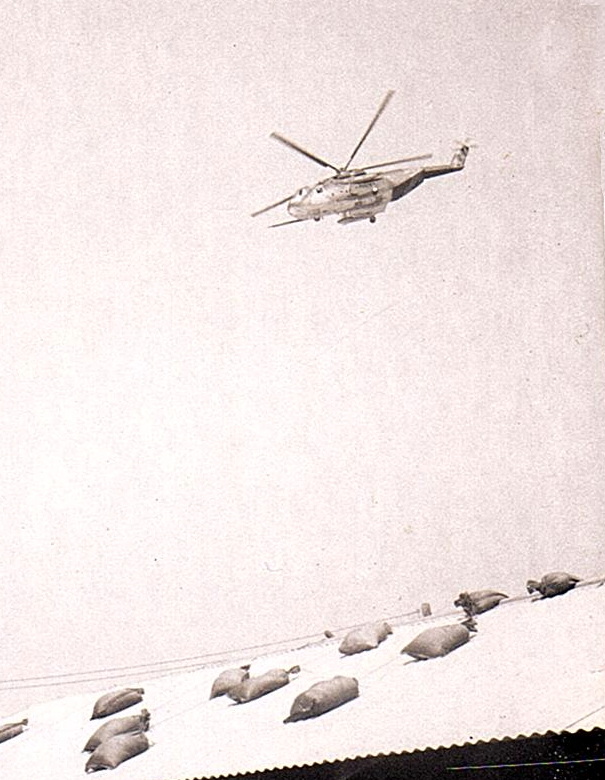
There are three situations that I can think of;
The first happened when I was on board the Jonas Ingram DD938 out of Mayport, Fla. I was a cook on board at the time and working nights as the “Night Baker.” We made several Atlantic crossings to go on our Mediterranean deployments. This one time, as we were coming back to the US, the seas were really rough. One of our duties was to make items for the next morning’s breakfast. The following day, we were to have hash brown potatoes, which meant I had to get some potatoes, peel them, and shred them. We got potatoes in 50lb boxes and stored them on the second deck around gun Mt. 32. I CS3. I had a couple of mess cooks that worked for me. Because the seas were so rough and dark out, I thought I would go and get the potatoes myself. I got a box of 50lb potatoes up on my left shoulder, and I’m going down the outside ladder from the second deck to the main deck; I’m about halfway down the ladder when the ship takes on a heavy wave to the Port (left) side making it roll heavy to the Starboard (right), as it did that the ship’s motion threw me out over the ladder and outside of the ship, lucky for me I had a good hold of the handrail. It was like it was all one motion; as the ship rolled, it threw me out over the ladder and outside of the ship; as it did that, I threw the potatoes out at the same time, then just as quick as the ship rolled out, it rolled back throwing me back on to the ladder. Needless to say, this scared the hell out of me; after that, anytime I wanted anything, I would send a mess-cook to get it.
The second time was when I was with MCB74; we were stationed at Camp Huskin North Red Beach in DaNang, Vietnam. One of our pastimes was to go swimming or board surfing in the bay. This one time, I was out in the middle of the bay when I got knocked off my board when the tide was going out. There was such a strong under-tow that I couldn’t get back to my board, it seemed like the harder I would swim the more it would carry me out. I would stop and wave my arms in the hope someone would see me. Finally, a fellow surfer showed up and helped me get on his board. He said it was just luck that he saw me. He said he and the others were going in when he thought he would look back one more time, and that was when he saw me. So he jumped on his board and came out and got me. I never went surfing after that.
I talked a little about this in question #2. I was in Vietnam again and was with MCB-22 in the early part of 1968 for the TET Offensive. I was in charge of the gallery at a rock-crushing site at VIn Di, Vietnam, about five miles south of the DMZ. In 1968, the North Viet Con tried to over-run all the US camps in the South.
The night before we got attacked, the local Vietnamese who worked on base said they would not be in the next day and that we were going to be attacked that night. The CO got the word and had us all over-stock our bunkers with ammo, MRE, and water. I had to fix an early dinner for everyone so they could get ready to man their bunker. It wasn’t until late in the night that we came under attack. I could hear small arms fire at one end of the camp; then all hell broke loose. We came under heavy motor attack, and the next thing there were automatic weapons firing all around (I had never been so F@#king scared in my whole life); for just a split second, my whole body felt so weak, and my legs felt like rubber, I could hardly stand. I remember firing out from my bunker and seeing and hearing rounds hitting the ground and the bunker all around me. I was firing at anything and everything that moved and at muzzle flashes coming outside the camp, seeing motors landing all around the compound, hitting buildings and trucks, and blowing them all to hell. I remember seeing flairs move across the sky, lighting up the compound. As it moved across the sky, the shadows moved in the other direction. It was like they were trying to run away from themselves. I could hear men yelling, guns firing, and motors exploding, all of this happening simultaneously. We were taking on some heavy fire when suddenly the “Jolly Green Giant” showed up. My God, what a machine. It is open-fired; it fires about 4,000 rounds per minute, with every fifth round a red tracer. It laid down a field of fire, and to this day, I can still see it in my “Mine’s Eye”; it was like a red snake coming down from the sky, and the roar of the gun still gave me goosebumps. It cleared everything in its path, and I do mean everything. After that, it got very quiet; we all just stayed in our bunkers until the all-clear was given in the morning. After that, we had to go out and secure the perimeter once again. I didn’t find any dead bodies, but I did find some body parts; I did see lots of blood trails. I found a Chi-Com pistol that I’m sure a Viet Con officer lost. I took it to I Corp and filled out all the paperwork needed to bring it home. A few days before we got ready to come home, I got a call from them saying it was approved and that I could pick it up. I still have that pistol today.
Of all your duty stations or assignments, which one do you have fondest memories of and why? Which was your least favorite?
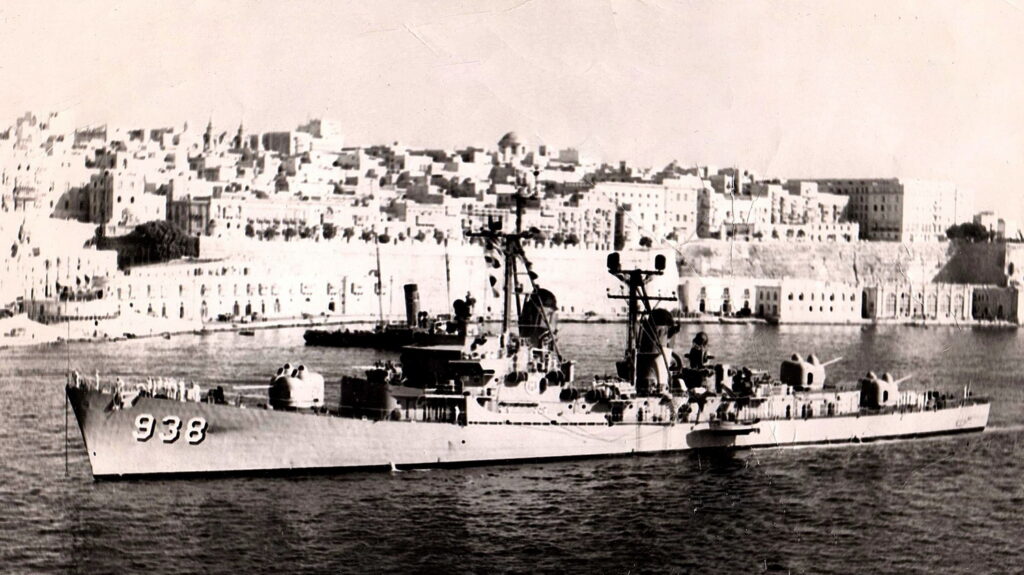
My favorite duty station has to be when I was stationed on board the USS Jonas Ingram DD938 out of Mayport, Fla. I went on board her in March 1965 as an E-2 and got off board as E-4, 3rd Class Petty Officer in Dec. 1968. I really enjoyed being on board her and spending time at sea. As a “Flag Ship,” we did so many things and went all over the place. I was a cook on board her and got to know almost every guy on the ship. Some of the guys I have built a lasting relationship with. A couple of them I still am in contact with, Tex Daum and Bill Ryden (almost 60 years); we did and went so many places and just had a lot of fun together. Thanks to being in the Navy I got to three different continents (Europe, Asia, and Africa). I did four Mediterranean Deployments and got to go to; France, Italy, Malta, Spain, Tunisia, Sardinia, Azores, Morocco, Turkey, Greece, and Gibraltar. I did one Middle-Eastern Deployment where we went through the Suez Canal and went to Egypt, French Somaliland, the Somali Republic, Pakistan, Jordan, Yemen, Lebanon, and Barbura in North Africa. I also participated in three Caribbean deployments, including Bermuda, Puerto Rico, Jamaica, the British West Indies, and Cuba. And I got to go to the Far East, where I got to go to Vietnam twice. I have gone to all points in the US: Washington, Florida, California, Maine, Virginia, Mississippi, Illinois, Alaska, and Hawaii. Through all this time, I have met some really great guys, some I will never forget.
My least favorite duty station has to be when I was stationed on board the USS Geo. C. Marshall SSBN 654. The crew was divided into two crews (Gold & Blue); when one crew has the boat out on patrol, the other is in port doing all types of training. I did make one patrol with her and hated it. The Gold and Blue crews just did not get along with one another, and each blamed the other for things that went wrong or didn’t work. It got so bad that, at one time, a crew member came on board with a gun and was going to kill another crew member. One time, we were on a 25-degree bubble dive when they were switching from one power board to another board when things went wrong, and the boat went “DEAD IN THE WATER” for about 20 minutes; needless to say, when we got back to port, heads began to roll. I was so glad when I got transferred off her and was sent to USS McCloy DE 1038 out of Norfork, VA.
From your entire military service, describe any memories you still reflect back on to this day.
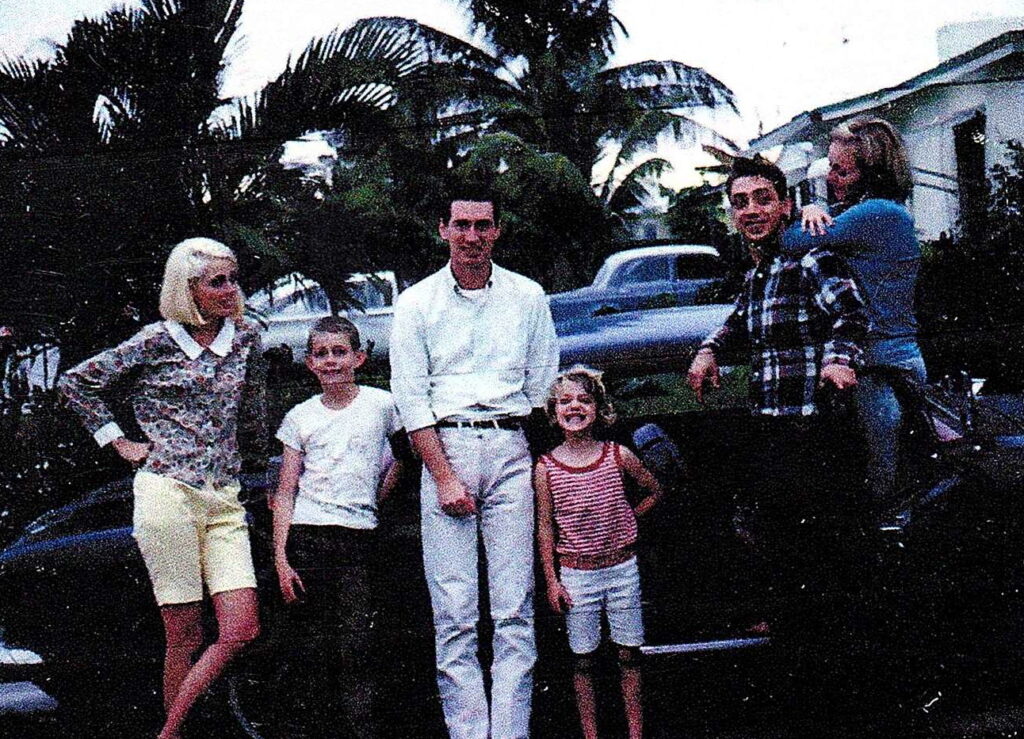
I guess it would have to be the time I was on board the JI. The ship had gone down to Miami, for what reason I don’t remember, but we went down there for a couple of days. While we were down there, I met a gal (Sherri Dale). She and a couple of her friends took us (Me, Tex, and Bill) all around.
A few weeks later, the three of us went back down and spent the day with the gals. It was a warm, sunny summer day in 1967. We had a lot of fun, and drove all over, taking in some of the sites, we went to the greyhound races. Man, can those dogs run? I remember when we were driving around, this song came on the radio, and the gals started singing “I Think We’re Alone Now” by Tommy James and The Shondells. I really enjoyed that day and being with my pals. Every time I hear that song, I think about that day.
What professional achievements are you most proud of from your military career?
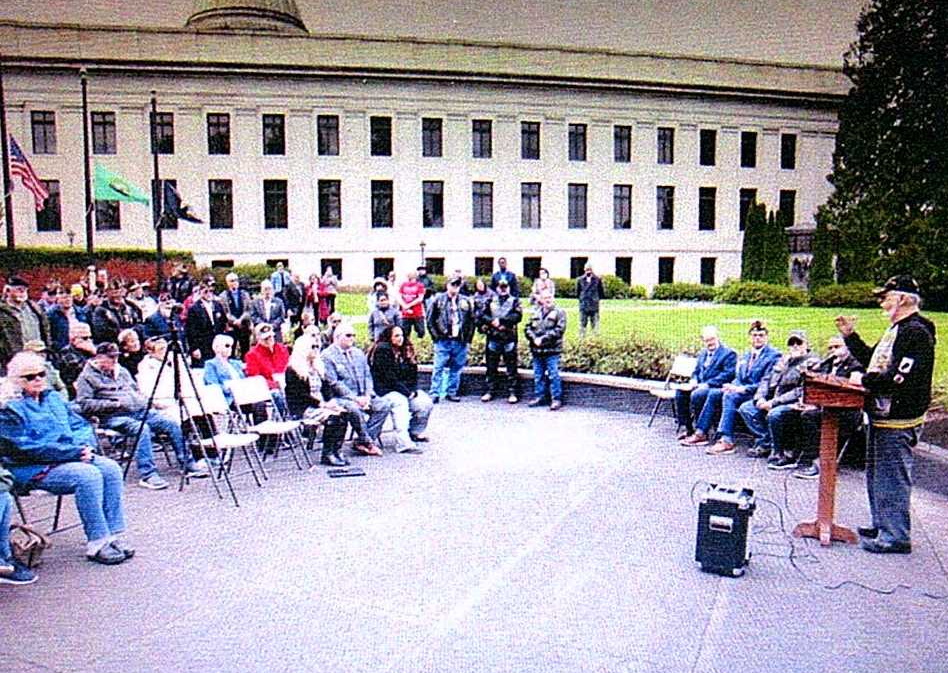
I think for me it has to be when I got my GED. I dropped out of high school before I turned seventeen, and after I turned seventeen, my dad made me join the Navy. Even though I had dropped out of high school, at that point in time, all they wanted was warm bodies to join up. Boot camp was a bit of a struggle for me, but I did manage to graduate. I went on board a ship out of Mayport, Fla., in March of 1964. After being on board for about six months, I was sent to the galley to be a mess cook. After working there for a while, I became friends with Kenney Reed, who was an E-5, Second Class Petty Officer. He got me transferred to be a full-time cook and took me under his wing to show me how to be a cook. I did take a number of correspondence courses to help me advance as a cook and to help get my GED. Thanks to Kenney’s help and encouragement, I was able to advance to E-4, Third Class Petty Officer, and to get my GED. Getting that GED has been a real springboard for my future education and to help land jobs. I was able to go on to the University of Wisconsin for Restaurant Management; Mt Hood Community College for Teacher Education and Chemeketa Community College for Food Management,.That is when I landed a job at the University of Oregon State as Assistant Director of Food Service for the Memorial Union; I was in charge of Operation and Production. I really enjoyed that job, but life got in the way, and I had to move on. I went on to other jobs and ended up retiring with the Washington Department of Corrections in 2010.
Of all the medals, awards, formal presentations and qualification badges you received, or other memorabilia, which one is the most meaningful to you and why?
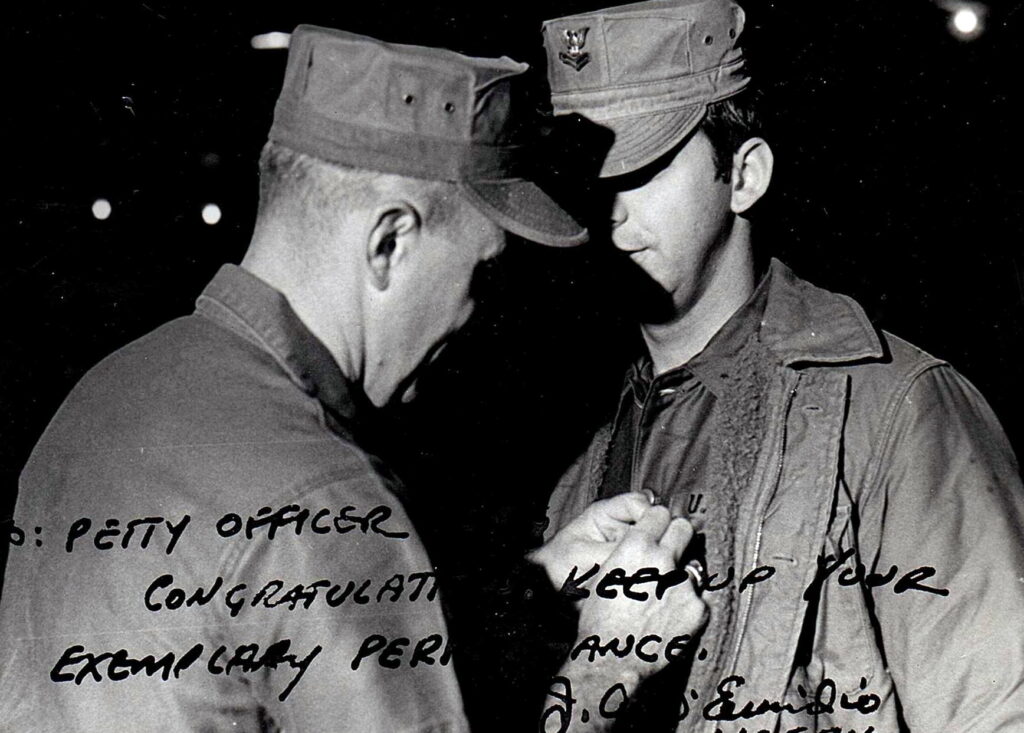
The medal (Ribbon) that means the most to me is the Combat Action Ribbon. I received this for coming under enemy fire and returning fire. As I talked about this before, that has to be the longest night of my life and the scariest because I thought for sure I was going to die that night. I had never been so glad to see the sun come up in the morning. Just talking and thinking about it gets me worked -up.
Which individual(s) from your time in the military stand out as having the most positive impact on you and why?
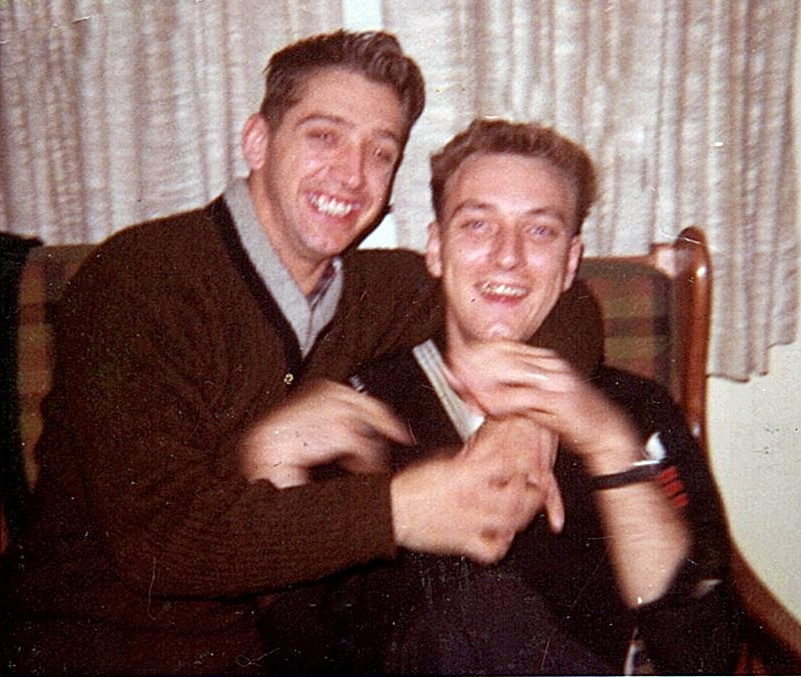
I have talked about this individual a number of times before. This person has to be Kenney Reed. He helped me in so many ways. He helped me to become a cook. He worked with me and showed me how to be a good cook, instilled in me a good attitude, and encouraged me to enjoy whatever I do. He helped me to advance as a cook from an E-2 to E-4 and helped me get my GED. I sure wish I knew where he is today. I would like to thank him for helping me and all that he did. Moreover, I would just like to see him again for old times.
List the names of old friends you served with, at which locations, and recount what you remember most about them. Indicate those you are already in touch with and those you would like to make contact with.
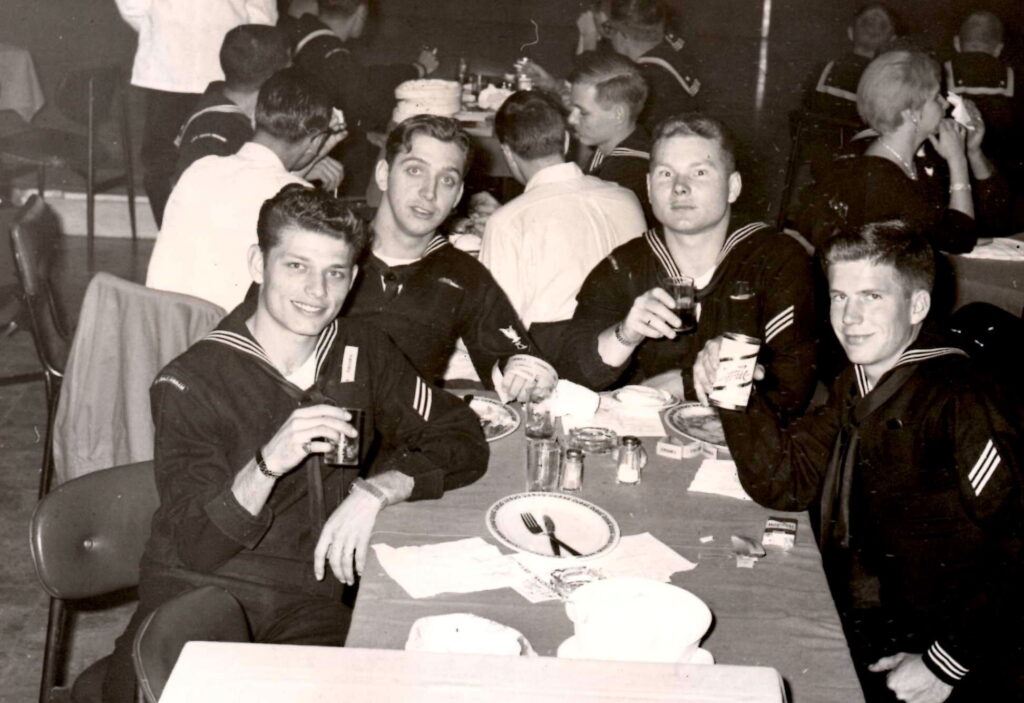
As a cook, I got to know many of the guys in my command. Most of the guys I really got to know were the ones I worked with or were in my department. Of them, maybe a dozen or so, I got to know them really well and hung out with them. I guess I’ll have to start with my first command. The JI out of Mayport, Fla. My very best friend has to be Kenney Reed. We worked together and went on liberty together, and he helped me and did so much for me. I would want so much to meet and see him again, but I can’t remember where he is from. I’m sure he told me, but I just don’t remember. Another real close friend was Berry Falter; we called him “Tiny,” he was a Chochtaw Indian from Chickasha, OK. At that time, you were not allowed to have civilian clothes on board the ship, so he and I shared a locker on the beach. He and I got to be really close friends; we pulled a lot of liberty together; he is another one I would really like to meet and see again. A couple of other guys I got to be close friends with were Tex Dumn and Bill Ryden. We did a lot of things together, and I am still in contact with those two. Some of the other shipmates I got to know were Dennis Buchanan, James Jereel, and Steve Cosby. Jim Osborn, Mike Broure, Danny Atkerson, and Bill Roosevelt, just to name a few.
MCB-22 and MCB-74 were both reserve units out of TX and OK. I was in CS’B” School in San Diago when MCB-22 was activated, and then later on, MCB-74 out of Gulfport, MS. I did one tour to Vietnam with MCB-22, and when we got back, they decommissioned it and sent me to MCB-74. I did one tour with 74. Some of the guys I got to know really well when I was 22 were George Ray (he was overall in charge of the gallery), Manuel Gullen, Alva Osbey, George Davis, Lon Curbello, George Rossman, and Ken Mason. Some of the guys I got to Know in 74 were Rick Jackson, Don Donaldson, Jim Burlow, Mike Wells, Tom Lambson, and Jerry Gabrys.
Can you recount a particular incident from your service which may or may not have been funny at the time but still makes you laugh?
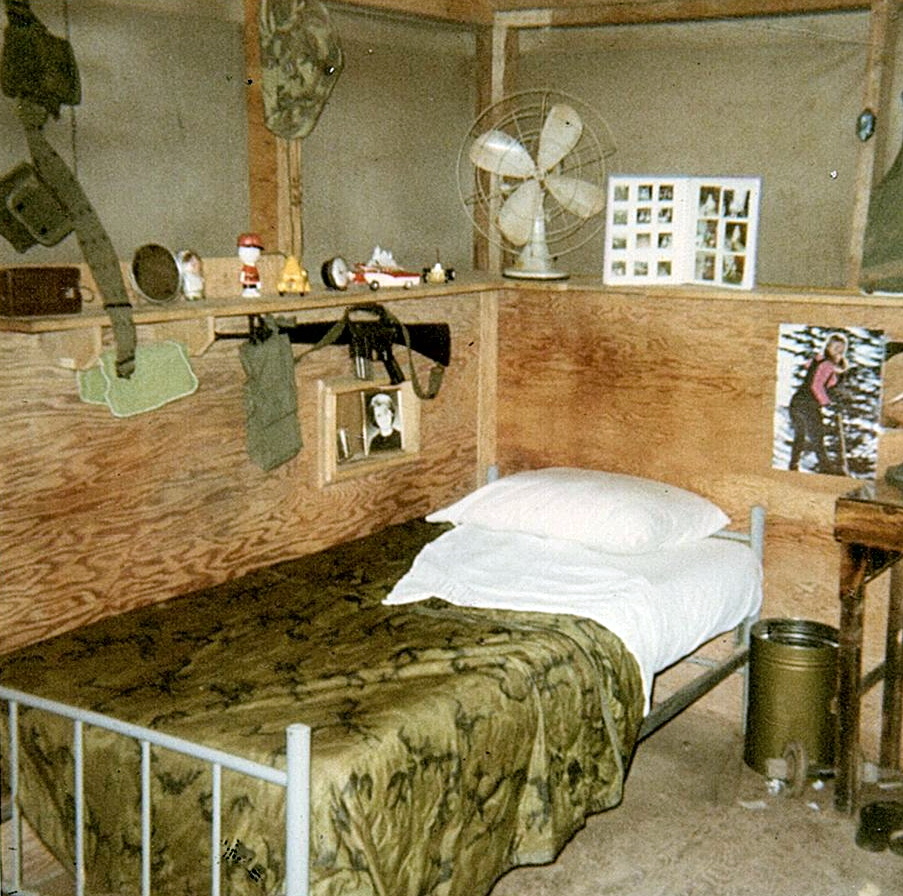
At the time this happened, it scared the hell out of me, but today I can laugh about it. This happened to me when I was in Vietnam. I was with MCB-22, and our battalion was stationed in Di Nang, Camp Haskins, North Red Beach. Where we were, there were snakes and lots of rats; I’m the Night Baker and would get off work around 3 or 4 in the morning. One morning, I got off work and was lying in the rack (bed), just about asleep, when I felt something under my T-shirt; the first thing I thought of was a snake. I looked down and saw this big, old, fat tail sticking out from my T-shirt. I said to myself, “An F#@king rat. I started sitting up, and as I sat up, I would swat the rat. I hit it maybe three or four times as it ran down my chest and onto the bed, every time I hit it, it would squeal “eeeek,” my heart was beating so hard that I thought it would jump out of my chest, even today just thinking about it gets my heart going.
What profession did you follow after your military service, and what are you doing now? If you are currently serving, what is your present occupational specialty?
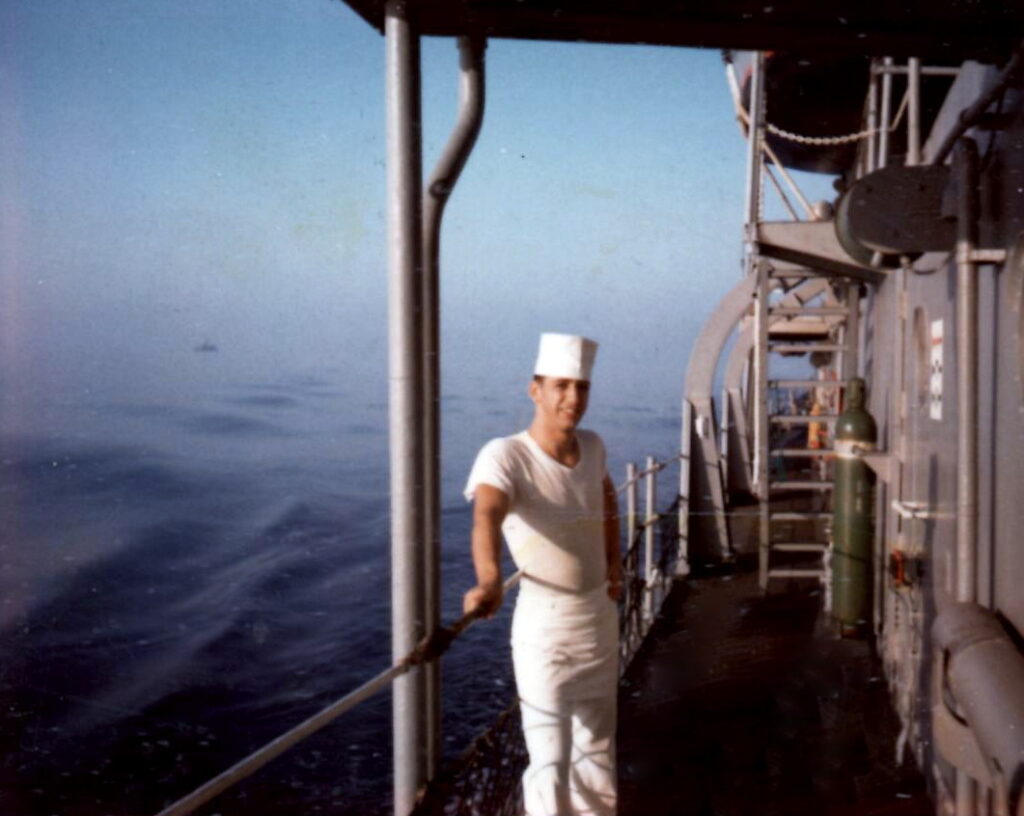
After my military service, I stayed in the food service, where I enjoyed working. I started out washing dishes, then a Prep-Cook, to Line Cook, to Head Cook. Then from there, I went to Shift Manager, to Assistant Manager, to Store Manager, to District Manager. I own my own restaurant in Portland, OR. Sold it and moved to Washington State, where I ended up working for the Department of Corrections as Food Manager when I retired in 2010.
What military associations are you a member of, if any? What specific benefits do you derive from your memberships?
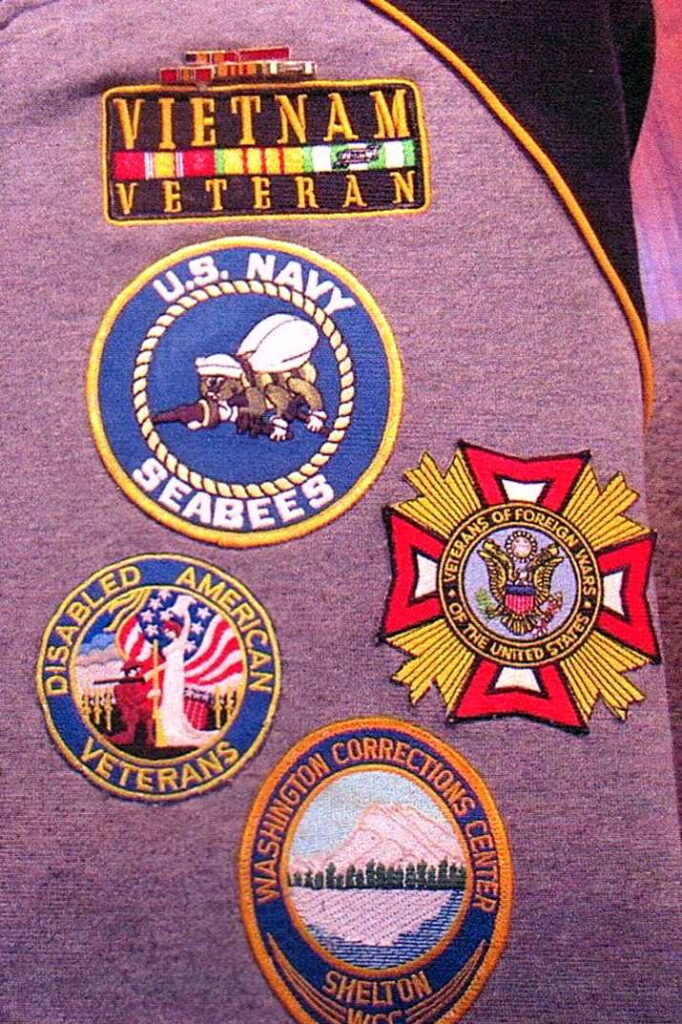
I am a member of the Veterans of Foreign Wars (VFW), where I am the Post Quartermaster (I keep track of all monies coming in and going out); I am also the District #5 Inspector. I go with our District and Vice Commander to each Post in our district, for which there are eleven of them, to ensure their Quartermaster and Adjutant books are up to date and correct and that they are following all the rules and regulations. I’m also a member of Disable American Veterans (DAV), where I am the Jr. Vice Commander, and I’m also a member of the Military Order of Cooties (MOC), where I and the Surgeon. I have served as Chairman of the State Investigating Committee for the state of Washington VFW. This is where about four of five of from other Posts go into a Post that has all sorts of trouble and problems and is about ready to go under. We go in to find out what kind of trouble and problems they are having and make our recommendations to the State Command as to what it will take to get the Post back on the right track. I must say that we have not lost a Post yet. In 2013, I had the opportunity to serve on the Veterans Advisory Board (VAB). The Board oversees a fund set up by the state and funded by tax dollars from the county. The fund is to help indigent and suffering veterans and families of deceased veterans in our county. When I came on board, they had no guidelines or procedures on how to use the funds. They did have a County Resolution but used the wrong RCW (Revised Code of Washington). So, I got the “Operating Policies” from six other counties to see how they set theirs up. Using all that information, the RSWs, and the County Resolution, I was able to put together “Mason County Veteran’s Advisory Board Operating Policy,” a twelve-page document with ten Articles and eighteen Attachments. I also did the “By-Laws, Standard Operating Guidelines(SOG), and Standard Operating policies (SOP). I am proud to say they are still using it today. I know it may sound like I’m tooting my own horn, but I have done similar things in other jobs I have had. I just wanted to show how much the military has helped a high school dropout.
For me, being in these organizations, being able to give back to my fellow comrades and our community, and helping homeless vets means a lot to me. Plus, just being with fellow vets and sharing comradeship with them has really helped.
In what ways has serving in the military influenced the way you have approached your life and your career? What do you miss most about your time in the service?
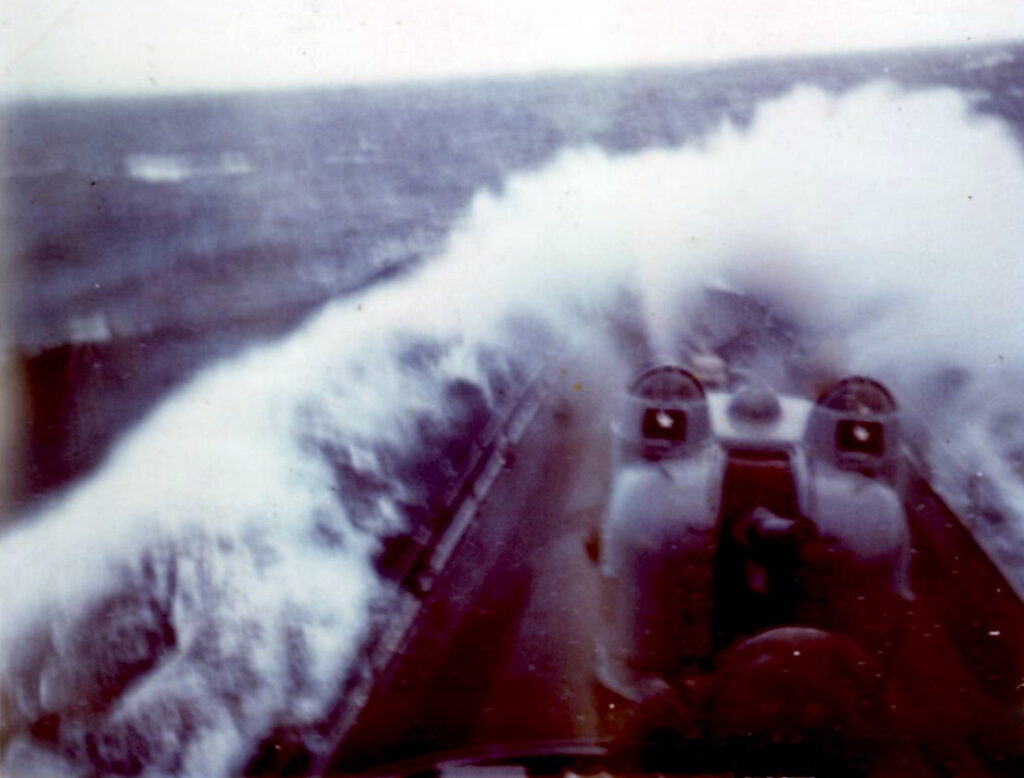
Being in the military has given me a clear sense of pride and organization. It has also taught me that any job is worth doing it right the first time; if you only do it half-ass, you’ll just end up having to come back and redo the whole thing over again. If you take on a job or volunteer for a job, give it to the very best of your abilities and make the job better for you and the next up-and-coming person. That whatever you do, enjoy what you are doing, and it will make the job and your life so much better.
The thing I miss most about being in the military is the travel and the comradeship, but most of all, I miss being at sea. I don’t know why, but I really enjoyed being at sea. I miss the fresh air, the sense of the ocean, the openness, just being out there.
Based on your own experiences, what advice would you give to those who have recently joined the Navy?
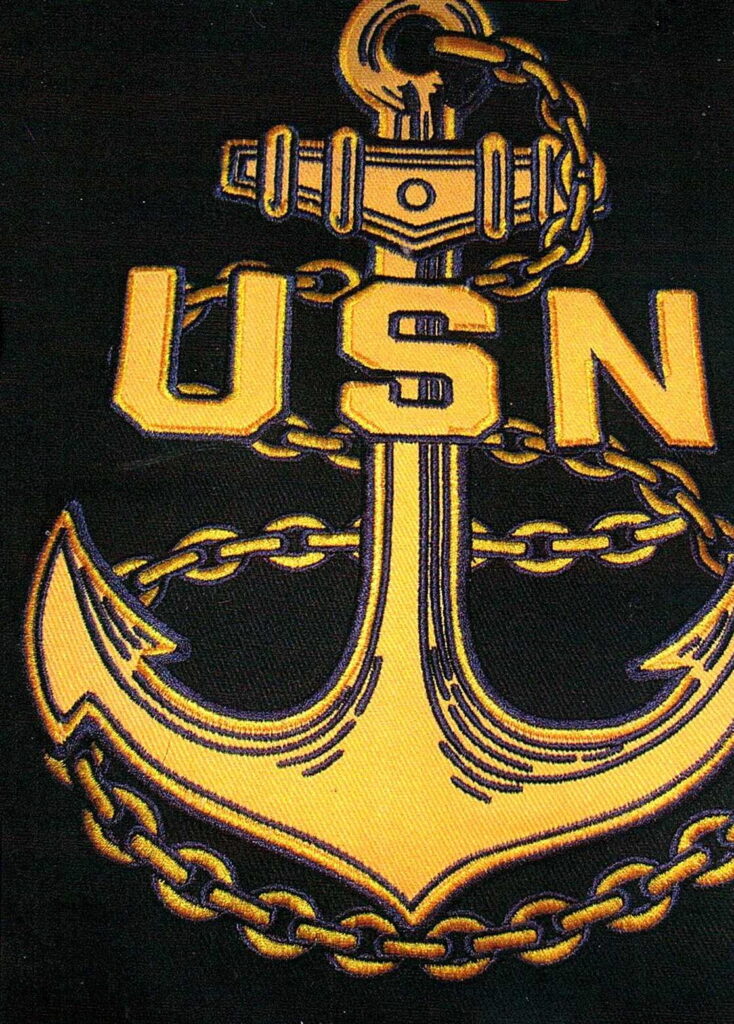
The Navy will always be with them, and no matter where they go or what they may do, the Navy will always be part of that. They have entered into a Brotherhood (Sisterhood) that will be with them for the rest of their lives. That there always be someone to watch their back, that no matter where they go or do, a Brother will always be right there with them. If they help in any way, no matter how big or small, there will always be a Brother to step up and help them in any way they can.
In what ways has togetherweserved.com helped you remember your military service and the friends you served with.
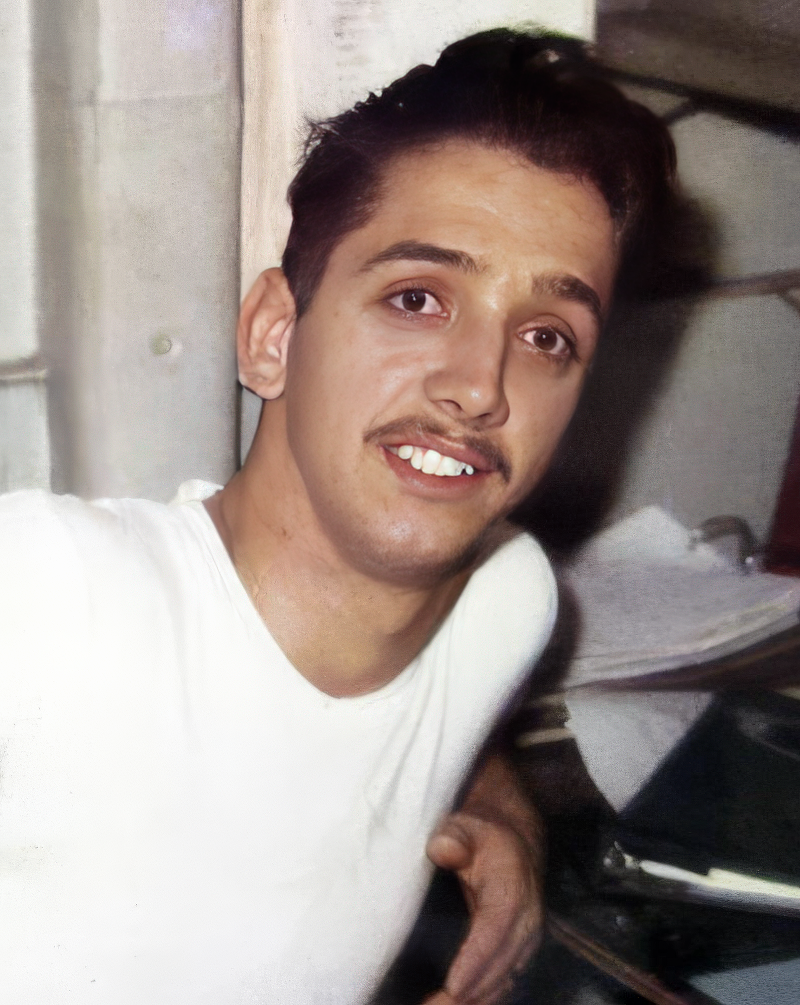
TWS has helped me to remember past shipmates and friends, events, and things that I did when in the service. As for me, and I’m sure it is true for all others who have done these questions, this is just the tip of the iceberg for all the things they have done and seen while in the service.
PRESERVE YOUR OWN SERVICE MEMORIES!
Boot Camp, Units, Combat Operations
Join Togetherweserved.com to Create a Legacy of Your Service
U.S. Marine Corps, U.S. Navy, U.S. Air Force, U.S. Army, U.S. Coast Guard
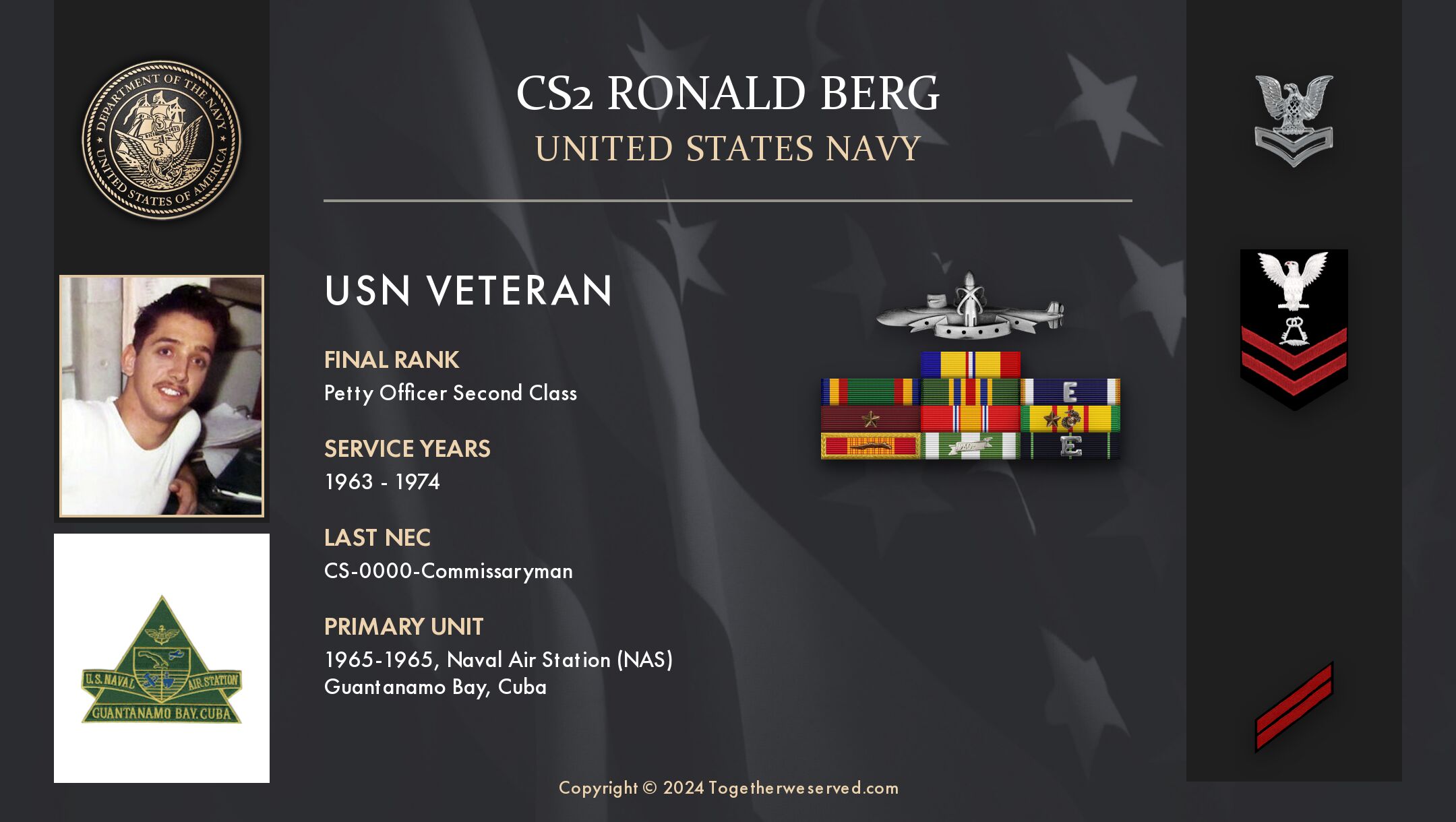
0 Comments